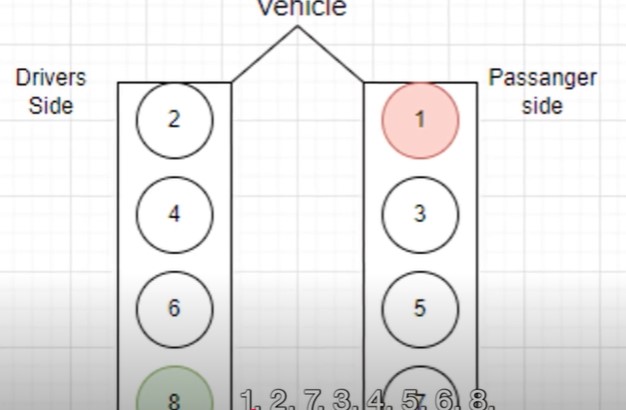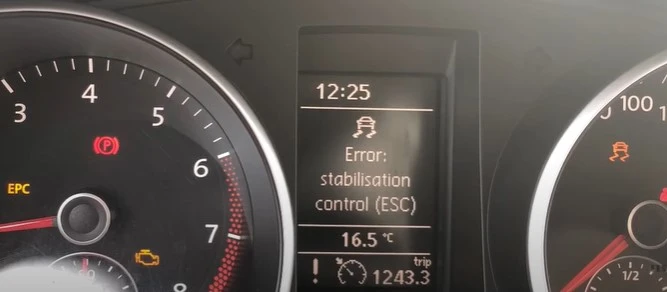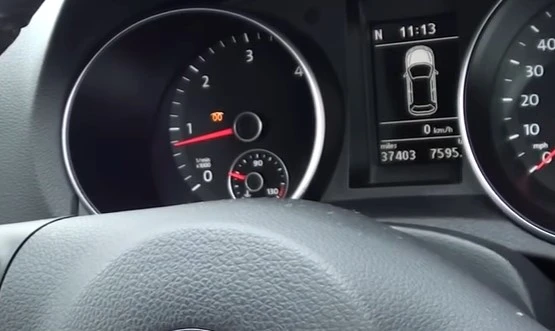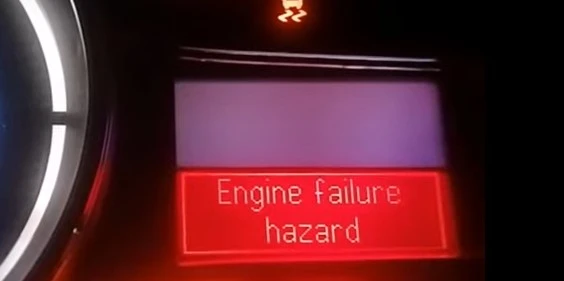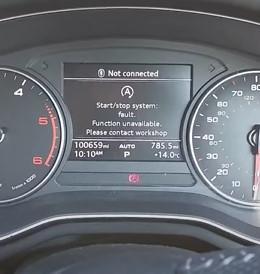Parking Brake Malfunction Audi: Causes, and Solutions
A Parking Brake Malfunction Audi is a common issue that many Audi owners face. This problem can prevent the vehicle from being parked securely, potentially causing safety risks.
In this article, we’ll explore the potential causes of a parking brake malfunction, its symptoms, and how to fix it effectively.
Whether you’re driving an Audi A3, A4, A6, Q5, or any other model, understanding the causes and solutions for a parking brake malfunction is essential to maintaining your vehicle’s safety and performance.

What is a Parking Brake and Why It’s Important for Your Audi?
A parking brake, also known as an emergency brake or handbrake, is an essential component of your Audi’s braking system.
Its primary function is to keep the vehicle stationary when it’s parked, especially on inclines. The parking brake engages the rear brakes and prevents the car from rolling.
In modern Audis, the parking brake can be either manual or electronic. The manual parking brake involves pulling a lever, while the electronic parking brake (EPB) is activated with the press of a button or switch.
Understanding how this system works can help you troubleshoot and address any issues you might face.
Causes of Parking Brake Malfunction Audi Vehicles
Several factors can contribute to a parking brake malfunction in Audi cars. Let’s break down the most common causes:
1. Faulty Electronic Parking Brake (EPB) System
Audi models equipped with an electronic parking brake rely on sensors, motors, and electrical components to function.
A malfunction in any of these components can lead to problems with the EPB system. This could manifest as an inability to engage or disengage the parking brake.
The electronic parking brake may fail due to:
- Worn-out sensors: Sensors in the system can become faulty over time.
- Electrical issues: Problems with wiring, fuses, or electrical connectors.
- Motor failure: The motor responsible for engaging the brake can wear out.
2. Sticking or Seized Brake Calipers
One of the main reasons for a parking brake malfunction, especially in older Audi models, is the sticking or seizing of the brake calipers.
If the calipers don’t properly release, the parking brake won’t disengage, causing the car to remain in a stationary position. This issue can arise from:
- Rust or corrosion: Brake calipers can corrode over time, especially in humid or salty environments.
- Lack of maintenance: Failing to maintain the braking system, including lubricating parts, can lead to stuck calipers.
3. Worn or Broken Parking Brake Cables
In vehicles with a manual parking brake system, worn or broken parking brake cables are common culprits behind a malfunction.
These cables stretch and weaken with age, eventually snapping or failing to engage the brake properly. In an Audi, replacing the cables may be necessary if they’ve become worn.
4. Low Brake Fluid Levels
The parking brake system in Audis (especially with an EPB) relies on hydraulic fluid to operate. Low brake fluid levels can lead to a malfunction, causing the parking brake to either fail to engage or disengage. This can happen due to a leak in the brake lines or air in the system.
5. Faulty Brake Switch or Sensor
In modern Audis, there are various sensors and switches that monitor the parking brake’s function. If the brake switch or sensor malfunctions, it may cause the parking brake to engage or disengage improperly.
A malfunctioning brake light switch, for example, can prevent the parking brake warning light from turning off, even when the brake is fully disengaged.
Symptoms of a Parking Brake Malfunction Audi
Knowing the symptoms of a parking brake malfunction is crucial for preventing potential issues. Here are some common signs that you may be experiencing a parking brake malfunction in your Audi:
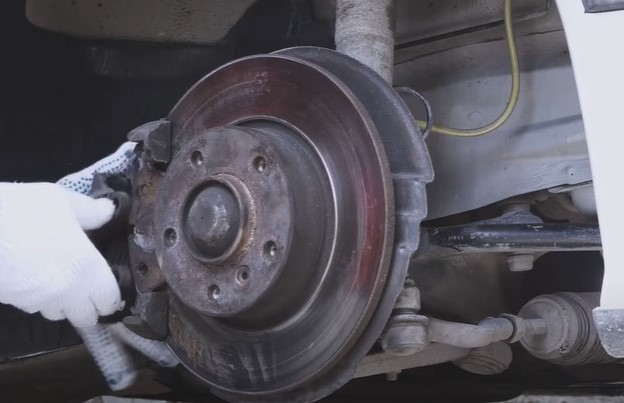
1. Parking Brake Warning Light Illuminated
One of the most obvious signs is the illumination of the parking brake warning light on your Audi’s dashboard. This could indicate a problem with the brake system, such as low brake fluid or an issue with the electronic parking brake.
2. Parking Brake Won’t Engage or Disengage
If the parking brake won’t engage, your Audi may roll when parked, especially on an incline. On the other hand, if the parking brake won’t disengage, your vehicle might feel like it’s being held back by the brake, causing performance issues.
3. Strange Noises While Engaging the Parking Brake
If you hear unusual noises, such as grinding or squealing, when engaging or disengaging the parking brake, this could be a sign of a problem with the brake pads, calipers, or parking brake cables.
4. Unusual Vehicle Behavior When Driving
If you notice your Audi pulling to one side or experiencing reduced power while driving, this could be due to the parking brake being partially engaged. This happens when the brake doesn’t fully release, causing drag on the vehicle.
5. Manual Parking Brake Pedal or Lever Feels Loose
If the manual parking brake lever feels unusually loose or stiff, it may indicate a broken or worn-out cable, preventing the brake from functioning correctly.
How to Fix a Parking Brake Malfunction Audi Vehicles
Once you’ve identified the symptoms and causes of the parking brake malfunction in your Audi, it’s time to consider fixing it. Depending on the issue, here are a few potential solutions:
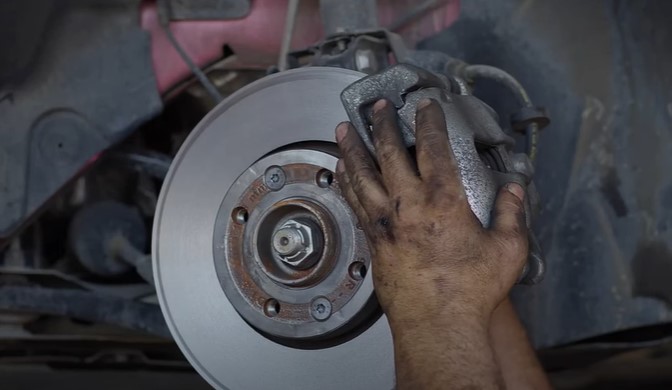
1. Check the Brake Fluid Levels
If the issue is related to low brake fluid, the first step is to check the brake fluid levels. If the fluid is low,
top it up with the correct brake fluid recommended for your Audi model. Make sure there are no leaks in the brake lines, as this can cause the problem to recur.
2. Inspect and Replace Worn Parking Brake Cables
For Audi models with a manual parking brake, worn or broken cables should be inspected and replaced. This is a job that typically requires professional assistance.
If you’re not comfortable doing it yourself, it’s best to visit a certified mechanic who can replace the parking brake cables and ensure the system works smoothly.
3. Address Electronic Parking Brake Issues
If you own an Audi with an electronic parking brake, addressing a malfunction can be more complex. The issue could be with the motor, sensors, or electrical components. It’s recommended to have the car scanned using diagnostic tools to pinpoint the exact cause.
If the issue is electrical, a professional technician may need to reset the EPB system or replace faulty components.
4. Replace or Lubricate the Brake Calipers
In case of stuck or seized brake calipers, you may need to replace them or at least clean and lubricate them to ensure smooth operation.
Rust or corrosion can prevent the calipers from moving freely, so cleaning the parts and ensuring they function correctly is essential. If they’re too damaged, replacement may be necessary.
5. Check and Replace Faulty Sensors or Switches
Faulty sensors or switches can often cause a parking brake malfunction. Audi vehicles have a range of sensors and switches monitoring the brake system.
If any of these sensors fail, the system may not operate as expected. Replacing the faulty sensor or switch is typically the solution, and a professional mechanic can do this using diagnostic tools.
Preventing Future Parking Brake Malfunctions
To prevent future parking brake malfunctions, regular maintenance is crucial. Here are some tips to keep your Audi’s parking brake in top condition:
- Regular inspections: Have your parking brake system inspected during routine service appointments.
- Keep the system lubricated: Ensure that the parking brake cables and calipers are lubricated to prevent sticking or seizing.
- Monitor brake fluid levels: Check your brake fluid levels regularly and top them up as needed.
- Use the parking brake correctly: Always engage the parking brake when parking, even on flat surfaces, to ensure the system stays in good working order.
People also ask
What does parking brake malfunction mean?
A parking brake malfunction means that the parking brake system in a vehicle is not functioning properly.
This can prevent the brake from engaging or disengaging correctly, which may cause the car to roll when parked or remain stationary when it shouldn’t.
It can result from issues with the brake cables, sensors, motors, or low brake fluid, and requires repair to ensure the vehicle remains secure when parked.
How do you reset the parking brake on an Audi?
To reset the parking brake on an Audi, follow these steps:
Turn on the ignition (without starting the engine).
Press and hold the brake pedal.
Press the parking brake button or lever (depending on your Audi model) for 10-15 seconds until the system resets or the warning light goes off.
If it’s an electronic parking brake (EPB), you may need to use a diagnostic tool or visit a mechanic to reset it if the issue persists.
How much does it cost to fix a parking brake malfunction?
The cost to fix a parking brake malfunction on an Audi typically ranges from $150 to $500, depending on the issue.
Simple fixes like adjusting or replacing cables may cost less, while more complex problems, such as repairing the electronic parking brake or replacing sensors or motors, can cost more.
Labor charges and part prices can vary based on the model and location. It’s best to get a quote from a certified mechanic for an accurate estimate.
Conclusion
A Parking Brake Malfunction Audi can be a serious issue that compromises the safety of your vehicle.
Whether it’s a problem with the electronic parking brake, the brake calipers, or the parking brake cables, diagnosing and fixing the issue early can save you from expensive repairs and prevent dangerous driving conditions.
If you’re not confident in handling the repairs yourself, it’s always best to seek help from a certified Audi mechanic who can diagnose and resolve the issue professionally.

